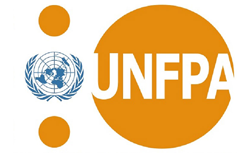Sexual Gender Based Violence Prevention - Capacity Building Training Workshops for Humanitarian Front-line Professionals
Symbiosis-School of Political Studies in Greece organized four capacity building trainings on Sexual Gender Based Violence (SGBV) from April to June 2017 in Thessaloniki with the support of the UNFPA mission in Greece. The four trainings, 8 hour duration each which is in total of 32 hours of training delivered.
The main expert delivering the training was Felicia Jones from UNFPA, with Ljubisa Vrencev facilitating the interactive workshops. Ninety-one participants attended the trainings, social workers, psychologists and lawyers, mostly working in humanitarian environments. Participants were actively involved in all training activities, sharing their experiences, and proposing topics to be discussed in depth according to their particular needs.
The capacity building trainings covered core topics conducive to the understanding of concepts and issues that are important when dealing with SGBV in daily field work with refugees: GBV Guiding principles and core concepts, Working with adult survivors of GBV (Interviewing and communication skills, Assessment skills, Intake and consent forms), Referral Systems, GBV and Sexual Reproductive Health in Emergencies, Clinical Management of Rape Survivors, Adolescent Reproductive Health, Health Promotion and adult learning.
Presentations and interactive exercises, combined with experience sharing among participants and trainers/facilitators, allowed the highest degree of involvement by the participants. In the post-training survey over 90% of participants rated the training as very useful, stating that they did not have the opportunity to get such comprehensive information on SGBV issues, which they face on daily basis in their work. The course fully met their expectations, while the most interesting topic that was covered by the training was referral systems, extremely important for their daily field work. Participants stressed the knowledge quality of the organisers and especially their ability to involve and engage participants. The practical trainings and simulations meant to facilitate the detection of vulnerabilities were very useful and contributed hugely.
The trainings were followed by four community meetings in November-December 2017, which served as workshops where needs of particular communities were discussed.
Community Meetings at Dendropotamos Roma Women Center, Thessaloniki
Fourteen (14) women – members of the Women Center actively participated in the two three-hour community meetings that took place during November 2017. Diavata refugee reception centre is located 10 minutes away from this neighborhood, therefore children will be enrolling in schools there, while locals, in this case, Roma people, interact already in everyday life with refugees, in open public spaces, in shops, in coffee places, in the market and more. Dendropotamos itself is a poor area, with the majority of population being disadvantaged Roma. The identification of the community and participants was based on their experience and exposure to issues of GBV related to both migration and their own Roma identity. The topics covered were the concepts and types of SGBV and SGBV issues in the contexts of public schools among students, refugee and local. Participants did not have previous knowledge on the different types of SGBV which brough a lot of attention, discussion and engaged the particpants as they were highly interested to understand and identify them. In this topic also prevention of SGBV among children was covered, as well as how a case should be treated (case management), the importance of confidentiality and signs of SGBV in different age groups. The topic of SGBV issues was brought up mainly by the participants themselves and allowed more in depth discussion, relating to possible actions and community antennas regarding prevention.
Community Meetings at the Scientific Society of Child and Adolescent Care (SY.ME.P.E.), Thessaloniki
Seventeen (17) participants attended the two three-hour community meetings that took place during December 2017. The participants were front-line staff in refugee camps and urban centers in Thessaloniki – personnel of the PRAKSIS NGO. The selection of the participants was based on their professional experience and exposure to issue of SGBV related to migration. The topics covered were the concepts and types of SGBV and SGBV issues with a focus on the context of work with migrant/refugee populations. Although most of the participants were familiar, to some extent, with SGBV issues, the discussion demonstrated the need for more specialised training, especially on the treatment of refugee SGBV victims or/and perpetrators.
Supporters




